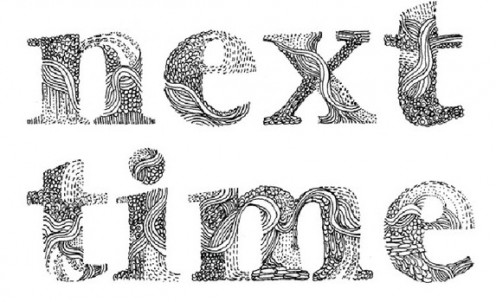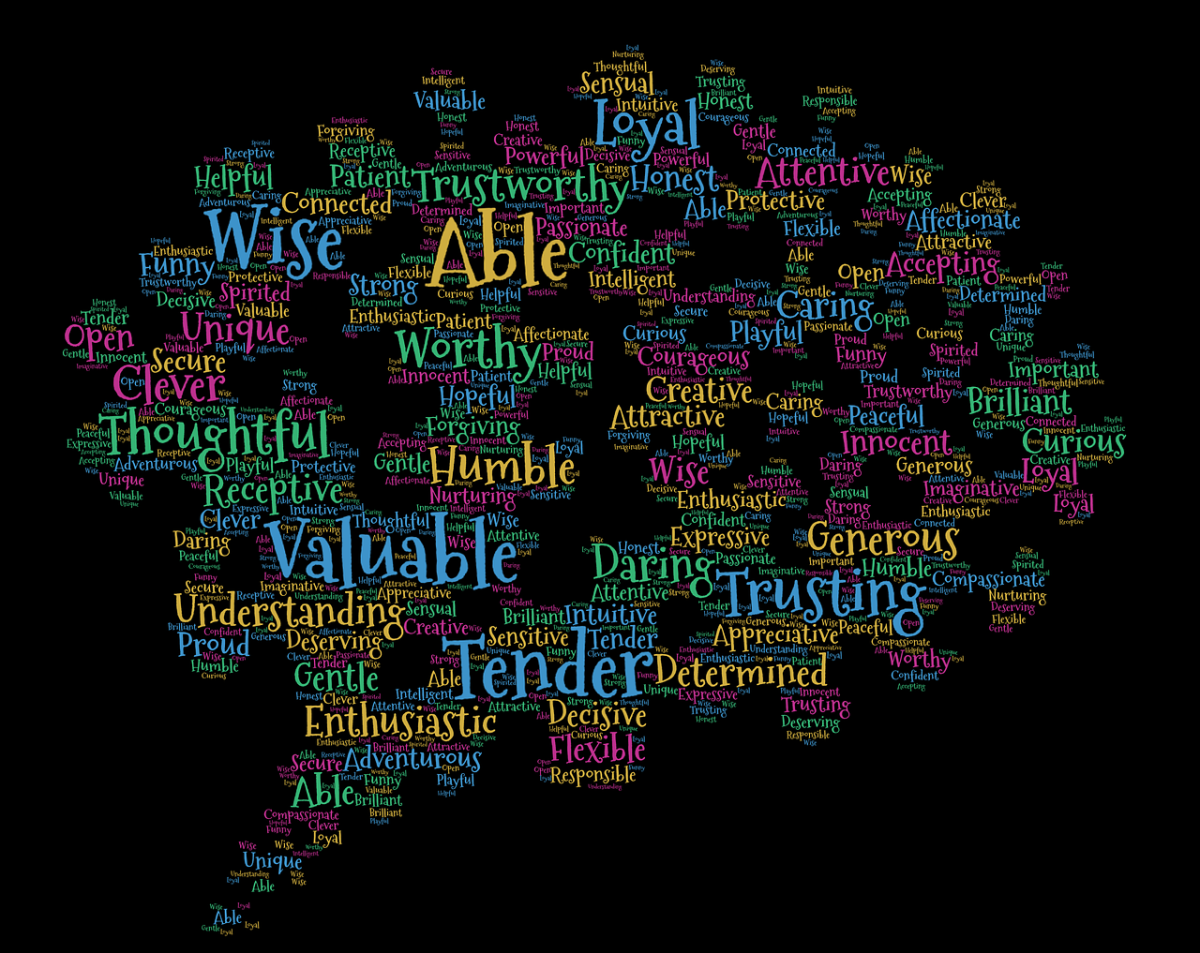Two Words to Live By

Next Time....
A few years ago a female co-worker came into the break room with a new hair color. Another co-worker commented, "Wow, you really went dark! Did you want it that black? You're usually redder." Her tone was definitely not complimentary and the scene made me uncomfortable. If those comments had been aimed at me, I would have wanted to run. I would have been embarrassed and my thoughts probably would have been self-critical: My hair does look bad. What a mistake I made. What was I thinking? I have to fix this right now!
But the first co-worker wasn't rattled at all. Looking through the fridge for her lunch, unfazed, she just shrugged her shoulders and said, "Eh...next time." And that was that.
I am an observer of people and try to learn from others. My co-worker's response to negativity with her use of the words "next time" was definitely a learning moment for me. I admired the way she handled the criticism and I admired her calm response. Those two words, "next time", diffused the situation and made my co-worker look collected, in control and confident. I now say "next time" to myself whenever I need a change in thinking, and I have to say, those two words always work.

Why Saying "Next Time" Works
Saying "next time" is a form of positive thinking. Positive thinking comes down to being aware of what you say to yourself. The words "next time" are simply a thought, something you can say to yourself that can change your perspective on a situation for the better. Saying "next time" is choosing to have a proactive thought rather than feeding a negative situation with more negativity.
"Next time" instantly eases anxiety. Our thoughts (what we say to ourselves) can fuel anxiety. When we say negative things to ourselves, or engage in "what if" thinking (what if they think I'm stupid?) we are beating ourselves up mentally, never coming up from the punches to see how things can be better. But when we instead say "next time", we are being gentle to ourselves, telling ourselves we can improve the situation. It is a much more positive, hopeful feeling!
"Next time" brings you back to the moment. When faced with criticism (your own or someone else's) or with a difficult situation, your negative thoughts can take you to the past (Why do I always do this?) or to the future (What if I never make enough money?) In either case, your thoughts are not in the present and the joy of the moment is lost. When you say "next time" you are letting yourself relax right now because you know eventually you will get it right (whatever it is).
"Next time" is a reminder that life is a journey. Sometimes we forget that life is about learning and growing and changing. No one gets it perfect right off the bat. When you say "next time" to yourself, you can actually be excited about the lesson you have learned or the improvement you will make, all in the process of becoming the best you that you can be. We will never get anywhere on this journey if we fail to take some steps. By saying "next time" you are promising yourself to move forward in a positive direction.
When to Say "Next Time"
When you feel you have made a mistake. So you cut your hair too short, wasted money on an infomercial or failed to stick up for yourself when you should have. Beating yourself up mentally about these situations will not change what happened or help at all! No matter how big or small the mistake, you can say "Next Time". Next time you will try a different hair stylist, or let your hair grow. Next time you will know to pass on that product and tell others it doesn't work. Next time you will be ready with the right words for that nemesis. If it truly is a major life incident, saying "next time" is not to minimize it, it is too allow you to move forward, forgive yourself, and take action so it never happens again. If we wallow in our mistakes we will get stuck there, but if we say "next time" we can instead learn from them and make better on them when given the chance.
When you face criticism The words "next time" seem to diffuse any criticism, whether it is constructive or just cruel. "Next time" is saying you are admitting you could improve and you will try. That is usually all the other person needs to hear. If the person is trying to help you, they will admire your ability to take constructive criticism and to work on improving yourself. If they are just being mean, their attack will be cut short by this response. And if you are being self-critical, "next time" will stop the mental attack and instead get you focused on positive solutions.
When you have regret . This category is very similar to mistakes, but ventures into the realm of guilt, shame and worry. Maybe you are supposed to be on a diet, but you just ate half a chocolate cake. Or maybe you feel guilty about the way you treat your mom. Or shame about your financial situation. When you start having such thoughts, "next time" will snap you out of it and help you turn the corner toward improvement. So you ate the cake. Next time you won't have so much. Next time you will be more patient when your mom calls. Next time when you're around your rich friends, you will think abundant thoughts rather than telling yourself you don't belong.
Try it, "Next Time"
When faced with the criticism of others, your own negative thoughts, the consequences of a mistake or the weight of regret, the words "next time" can lighten your mental mood. These positive words, said aloud or to yourself, can make you feel hopeful as you realize you can learn from any situation and take steps to make it better. They will allow you to enjoy the moment, even in the face of less than perfect circumstances, because they remind you that you possess the ability to improve things. Life is a whole lot easier when you think of it as a journey with the destination being to learn and to grow. We all try our best, but when we fall short, we can relax in knowing we will get it right, next time.









